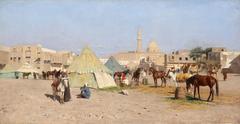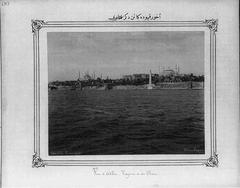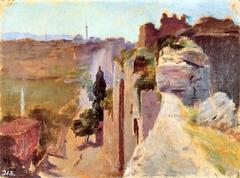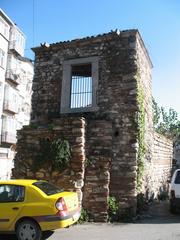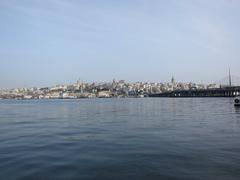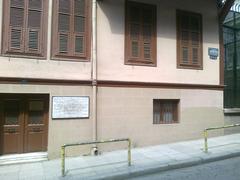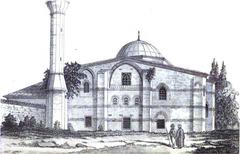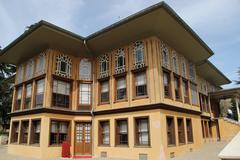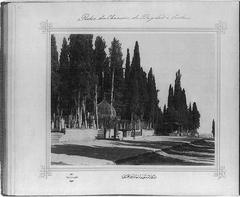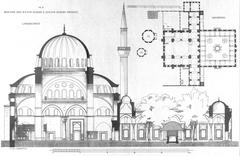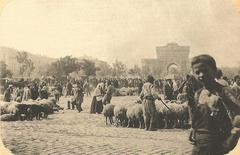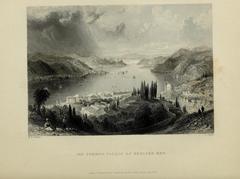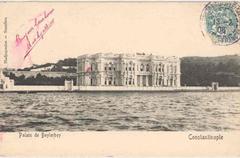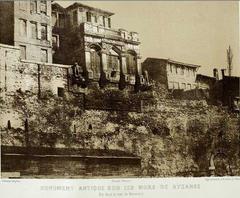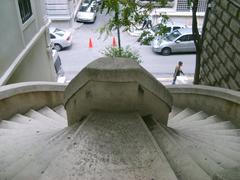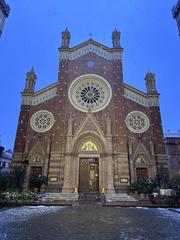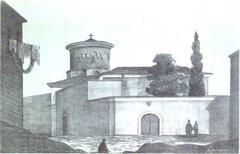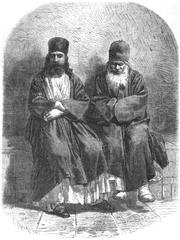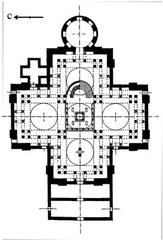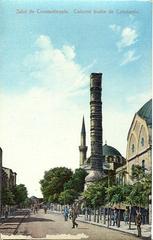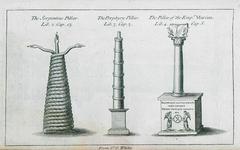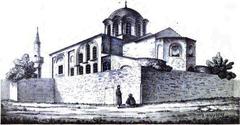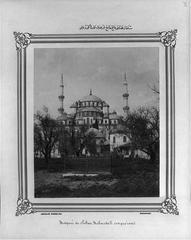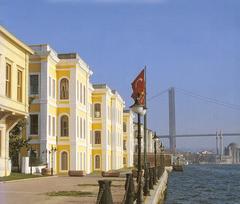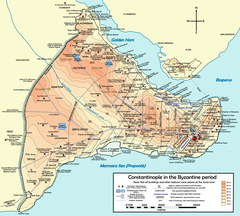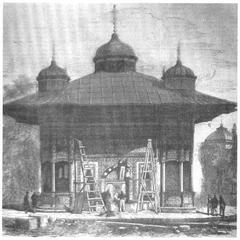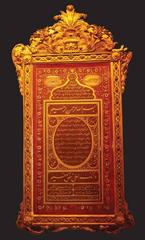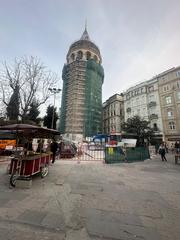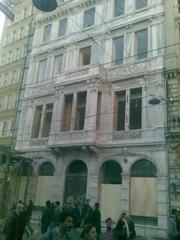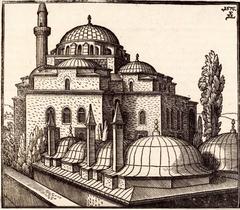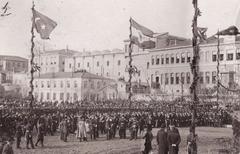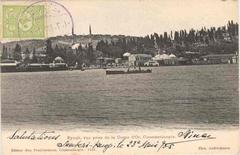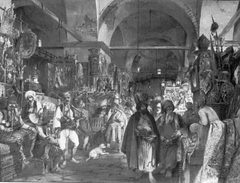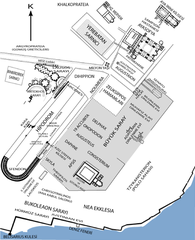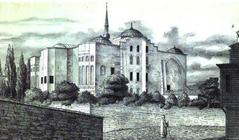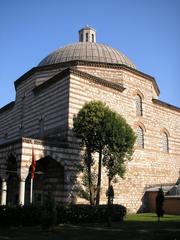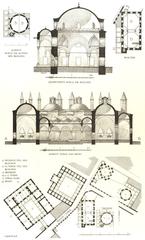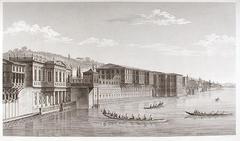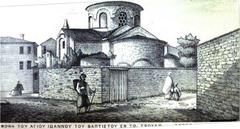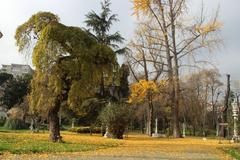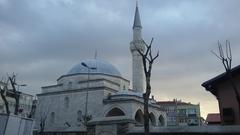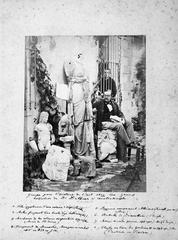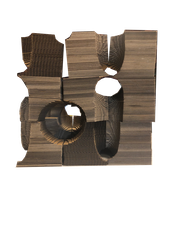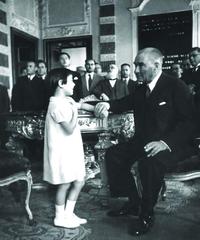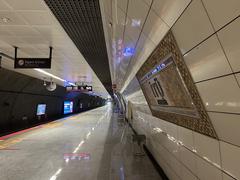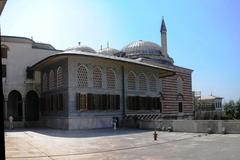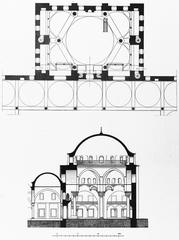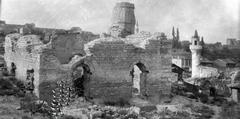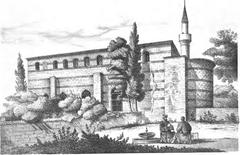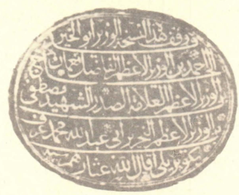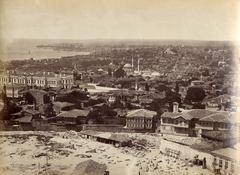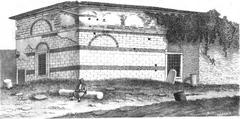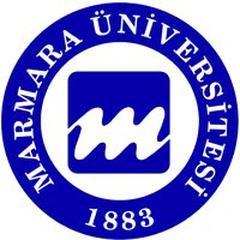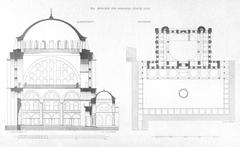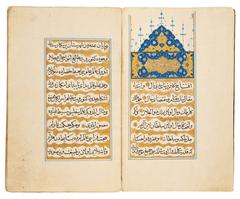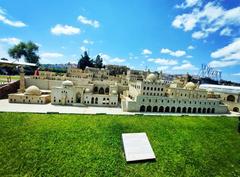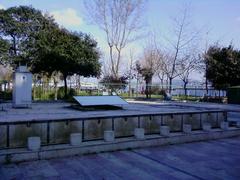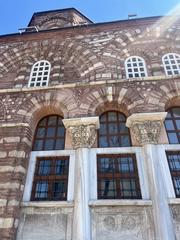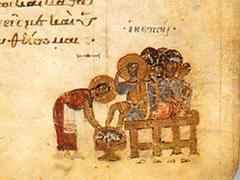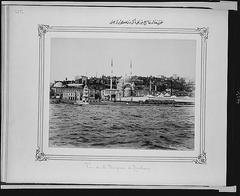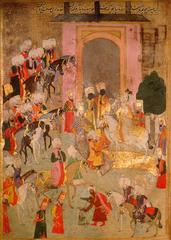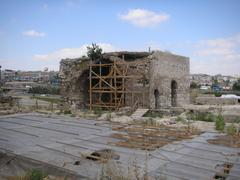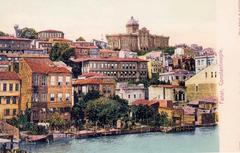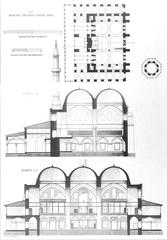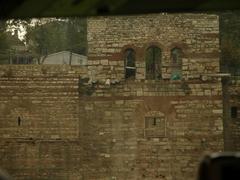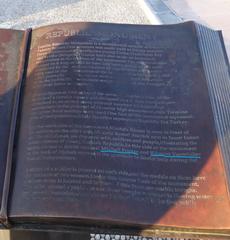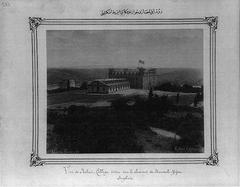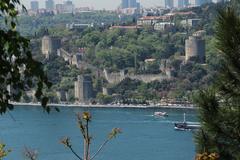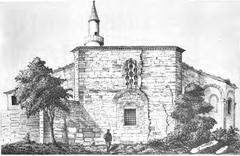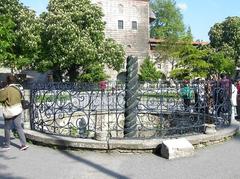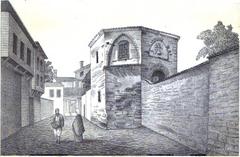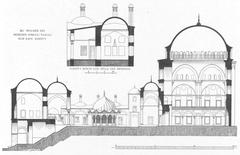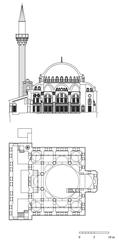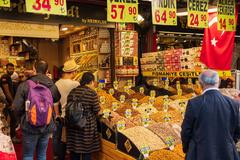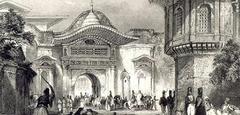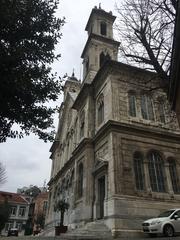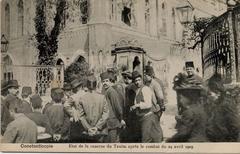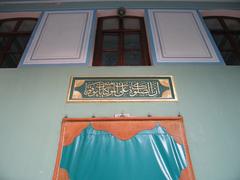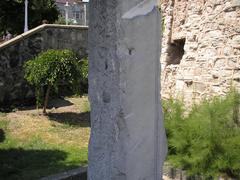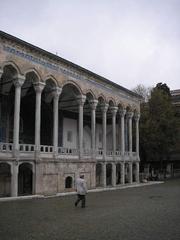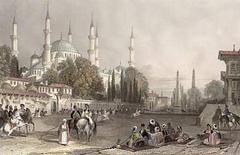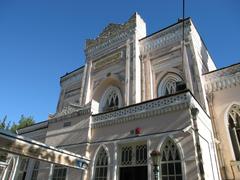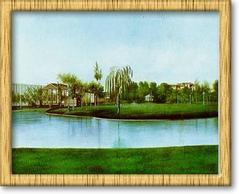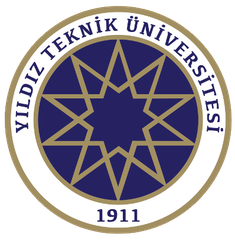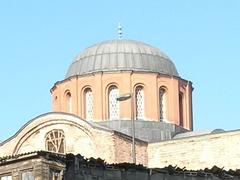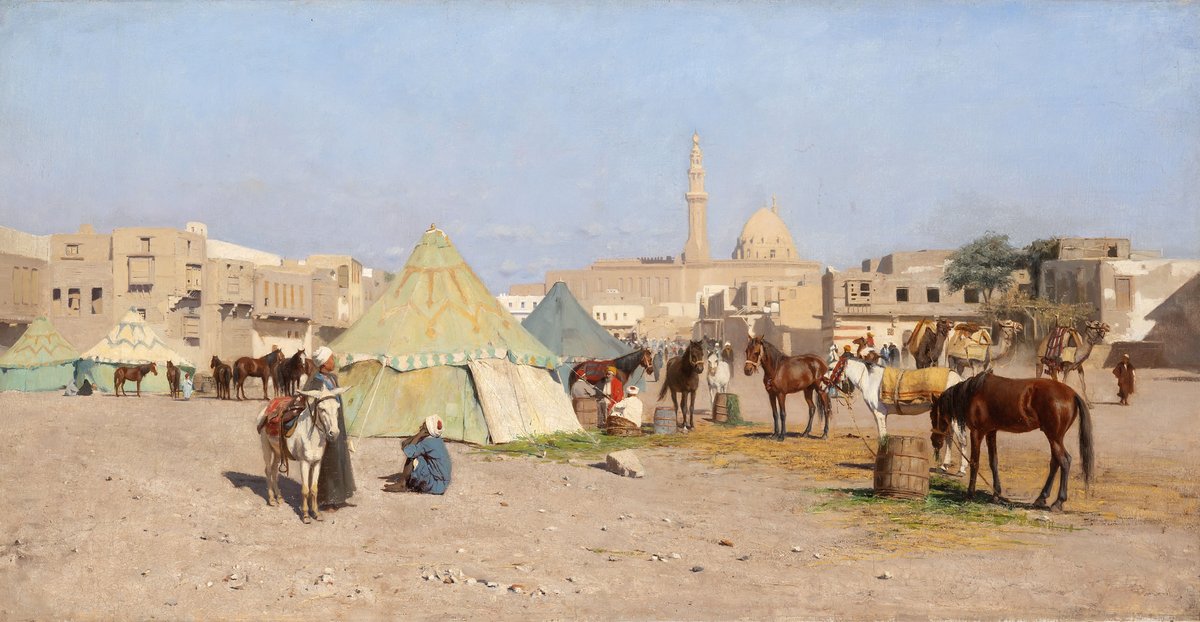
Pertevniyal Valide Sultan Mosque Visiting Hours, Tickets, and Istanbul Historical Sites Guide
Date: 14/06/2025
Introduction
Nestled in Istanbul’s lively Aksaray district, the Pertevniyal Valide Sultan Mosque stands as a striking testament to the city’s late Ottoman heritage and architectural innovation. Commissioned in the early 1870s by Pertevniyal Sultan, mother of Sultan Abdülaziz, this mosque is a rare example of female imperial patronage, reflecting both the era’s philanthropic values and cosmopolitan artistic tastes (Hidden Turkey; myforevertravel.com; visit.istanbul). Its unique blend of Ottoman Rococo, Gothic, Renaissance, and Moorish styles makes it an essential stop for architecture enthusiasts and history lovers alike.
As an active house of worship and community hub, the mosque offers free daily access to visitors, along with guided tours and accessibility features. Its strategic location near public transport hubs and historical sites such as the Grand Bazaar and Süleymaniye Mosque further enhances its appeal (turkiyeworld.com; Hidden Turkey). This guide will provide a detailed overview of the mosque’s history, architecture, visiting information, and practical tips to enrich your experience in Istanbul.
Historical Background
Commissioning and Patronage
The Pertevniyal Valide Sultan Mosque was commissioned in 1871 by Pertevniyal Sultan, the mother of Sultan Abdülaziz. Rather than being commissioned by a reigning sultan, this mosque is part of the select group of Valide Sultan mosques—built under the patronage of sultans’ mothers. Pertevniyal Sultan was an influential figure in the Ottoman court, known for her commitment to charitable and religious works. The mosque, as the centerpiece of an imperial complex, was intended to serve both spiritual and social needs, including a tomb, school, and fountain (Hidden Turkey).
Architectural Context and Innovations
Constructed during a period of rapid modernization and Westernization in the Ottoman Empire, the mosque exemplifies the eclectic architectural trends of the era (artofwayfaring.com). While its overall form respects Ottoman traditions, the design incorporates elements from Neo-Gothic, Renaissance, and Moorish architecture. Noteworthy are its pointed arches, ornate stonework, and vibrant tilework, all hallmarks of the Tanzimat modernization period.
The Role of Pertevniyal Sultan
Pertevniyal Sultan’s role as patron underscores the significant influence of royal women in Ottoman society. Her endowment of the mosque complex, which featured educational and charitable facilities, reflects the enduring Ottoman tradition of integrating religious and social functions within a single architectural ensemble (myforevertravel.com).
Construction and Timeline
The mosque was completed in 1872, with architectural credits often attributed to either Sarkis Balyan of the famed Balyan family or the Italian architect Montani Efendi, underlining the cosmopolitan spirit of 19th-century Istanbul (artofwayfaring.com). Its location in the bustling Aksaray district was chosen for prominence and accessibility.
Architectural Features and Symbolism
Stylistic Fusion and Ornamentation
The Pertevniyal Mosque is celebrated for its Ottoman Rococo style, characterized by ornate, eclectic decoration. The façade features carved stone, floral motifs, and calligraphic panels, while the interior boasts painted ceilings, stained glass, and gilded woodwork. The mosque’s design harmoniously blends Islamic geometric patterns with Western-inspired embellishments (myforevertravel.com; artofwayfaring.com).
Structural Layout
Despite its imperial status, the mosque is relatively modest in scale, reflecting the urban constraints of Aksaray. Its compact prayer hall is crowned by a central dome, flanked by two slender minarets. The original complex included a tomb, madrasa, and fountains—some of which remain visible today, though the main gate now sits partially below street level due to urban development.
Interior Atmosphere
Natural light filters through stained glass windows, casting colorful patterns across the prayer hall. The mihrab (prayer niche) and minbar (pulpit) showcase intricate craftsmanship and Ottoman calligraphy. The overall ambiance is both serene and uplifting, providing a marked contrast to the busy streets outside.
Symbolic and Cultural Significance
As one of Istanbul’s few mosques commissioned by a woman, Pertevniyal Mosque highlights the tradition of female patronage in Ottoman architecture. Its stylistic eclecticism reflects a transitional era in which Istanbul was embracing both its Islamic roots and Western modernity (artofwayfaring.com).
Visiting Information
Visiting Hours
- Open daily: 9:00 AM – 6:00 PM
- Closed during major Islamic holidays and non-Muslims may not enter during the five daily prayer times (check local schedules for specifics).
Tickets and Entry
- Entrance is free of charge.
- Donations are welcome to support maintenance and community programs.
Accessibility
- The mosque is generally accessible, with ramps at the entrance.
- Some areas may be difficult to access due to the mosque’s historic, below-street-level position.
Getting There
- Located in Aksaray, Istanbul.
- Easily reached via M1A metro (Aksaray station), T1 tram line, numerous bus lines, and taxi/ride-share services.
Dress Code and Etiquette
- Modest attire is required: women should wear headscarves and cover arms and legs; men should wear long trousers.
- Shoes must be removed before entering the prayer hall.
- Maintain quiet, avoid flash photography, and respect worshippers.
Photography
- Allowed in most areas, but avoid flash and photographing worshippers, particularly during prayers.
- Some areas, like the tomb or library, may have restrictions—check signage or ask staff for guidance.
Facilities and Nearby Attractions
- The mosque is adjacent to Pertevniyal High School and close to the Grand Bazaar, Süleymaniye Mosque, Laleli Mosque, and the vibrant Aksaray market district.
Preservation and Legacy
Conservation Efforts
The mosque’s original features, including its ornate gate and fountains, have been preserved through regular restoration. Urban development has partially obscured some elements, like the gate, but ongoing maintenance ensures the mosque’s continued historical and cultural relevance (Hidden Turkey; turkiyeworld.com).
Frequently Asked Questions (FAQ)
Q: What are the Pertevniyal Valide Sultan Mosque visiting hours?
A: Open daily from 9:00 AM to 6:00 PM, except during prayers and major Islamic holidays.
Q: Is there an entrance fee?
A: No, entrance is free. Donations are appreciated.
Q: Is the mosque accessible to people with disabilities?
A: Ramps are available, but the entrance is below street level, which may limit access for some visitors.
Q: Can I take photos inside the mosque?
A: Yes, but avoid flash and photographing worshippers without consent.
Q: Are guided tours available?
A: Tours can be arranged via local agencies; some walking tours include the mosque.
Q: How do I get there by public transport?
A: The mosque is near Aksaray metro and tram stations, and is also accessible by bus and taxi.
Travel Tips
- Check prayer times before visiting to plan your entry.
- Wear easily removable shoes.
- Combine your visit with nearby attractions for a full historical experience.
- Bring water, but refrain from eating or drinking inside the mosque.
- For updated prayer times, consult Diyanet or Istanbul prayer times.
Visuals and Resources
For a richer experience, explore virtual tours and high-quality images of the mosque’s exterior, stained glass, and mihrab. Maps and online resources can help you plan your route. For official information and images, visit visit.istanbul.
Internal Links
Conclusion
The Pertevniyal Valide Sultan Mosque is a captivating symbol of Istanbul’s layered Ottoman past and ongoing cultural vibrancy. Its eclectic architecture, historical significance, and enduring community role make it an essential destination for any traveler eager to explore the city’s rich heritage. Plan your visit with confidence and take the opportunity to immerse yourself in one of Istanbul’s most beautiful and storied mosques.
Download the Audiala App for more Istanbul travel tips and guided tours. Follow us on social media for updates on Istanbul’s cultural sites and visitor advice.
Sources
- Pertevniyal Valide Sultan Mosque Guide, 2024, Hidden Turkey
- Pertevniyal Valide Sultan Mosque: Visiting Hours, Tickets, and Architectural Highlights in Istanbul, 2024, My Forever Travel
- Pertevniyal Valide Sultan Mosque, 2024, ArtofWayfaring
- Pertevniyal Valide Sultan Mosque, 2024, Visit Istanbul
- Pertevniyal Valide Sultan Mosque: A Hidden Gem of Istanbul’s Ottoman Architecture, 2024, Turkey World
